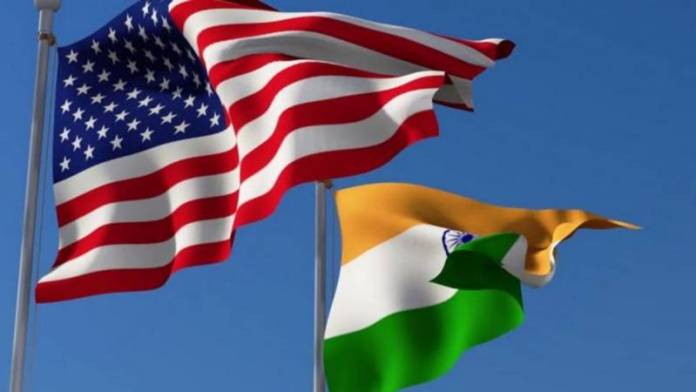The India-US strategic ties refer to the bilateral relationship between US and India, which has evolved over the years to encompass various aspects, including political, economic, military, and cultural cooperation. In recent years, there has been a growing convergence of strategic interests between India and the US. Both countries share concerns about terrorism, regional stability, and maritime security. Additionally, they see each other as potential partners in addressing global challenges like climate change, economic growth, and technological innovation.
The strategic partnership between India and US has gained significant attention due to its geopolitical implications and the evolving global dynamics.
The US views India through the prism of Chinese influence in the region. In order to contain Chinese hegemony, US has been enhancing its strategic ties with India. To protect own strategic interests, US has been ignoring some human rights issues taking place in India particularly against minorities.
Accusations of overlooking human rights violations in pursuit of strategic interests are not unique to the relationship between US and India. When nations form strategic partnerships, there is often a complex balance between addressing shared interests and promoting values such as human rights and democracy. Unfortunately, nations often engage in realpolitik, where pragmatic considerations such as security, economic interests, and geopolitical positioning can sometimes take precedence over human rights concerns. Arguably, this can lead to overlooking or downplaying human rights issues in favor of achieving broader objectives.
While the US-India relationship has certainly seen cooperation on various fronts, including defense and economic matters, the US has entirely ignored human rights concerns in India. Diplomacy involves engaging with countries across a spectrum of issues. Critics argue that overlooking human rights violations can undermine long-term stability and global values. They believe that a strategic relationship should also include meaningful discussions on human rights, democracy, and civil liberties.
The approach to addressing human rights concerns can vary. Some argue that engaging with countries through diplomatic channels can be more effective than public condemnation, as it allows for behind-the-scenes pressure and dialogue. The geopolitical landscape is constantly evolving. Policies and priorities can shift based on factors such as changes in leadership, domestic pressures, regional tensions, and global events.
India-US strategic ties have evolved over the years to encompass a range of areas, reflecting both converging interests and occasional challenges. This relationship holds implications for regional and global dynamics, and its trajectory is likely to be influenced by geopolitical developments and changing priorities of both nations. Recently, Indian liberal voice Arundhati Roy delivers a powerful critique of the U.S.-India partnership, exposing the erosion of democracy under PM Modi’s rule. She highlights the U.S. government’s complicity in empowering a dangerous regime that discriminates against minorities and curtails civil liberties.
The nature of the alliance between India and US can have significant consequences for the region, especially given the rising tensions between India and China. The dynamics between these three major powers can shape the geopolitical landscape in Asia and beyond. The strength and character of the Indo-US alliance can influence regional stability. A close partnership between India and the US could act as a counterbalance to China’s influence, potentially contributing to a more stable balance of power in the region.
A robust alliance could enhance deterrence capabilities against potential aggressive actions by China. The presence of a strong strategic partner can discourage countries from engaging in actions that could escalate tensions. The nature of the alliance could impact economic interactions within the region. Trade relationships, investment patterns, and supply chain dynamics could be influenced by the geopolitical alignment of India and the US.
The strengthening of the Indo-US alliance might prompt other countries in the region to adjust their diplomatic and strategic alignments. This could lead to the formation of new partnerships and alliances. The evolving alliance could impact the broader geopolitical landscape, including the influence of other major powers such as Russia and the European Union. Their reactions to this alliance could further shape regional dynamics. While the alliance can contribute to deterrence, there’s also a potential risk of escalation if tensions between India, China, and the US are not managed carefully. Effective communication and crisis management mechanisms are essential to prevent unintended conflict.
In conclusion, the nature of the Indo-US alliance holds significant implications for the region, particularly in the context of rising tensions between India and China. The interactions and strategies of these countries, along with the responses of other regional and global players, will shape the future dynamics and stability of the region. Ignoring India over its human rights violations is strengthening New Delhi’s stance to act more aggressively against minorities.


